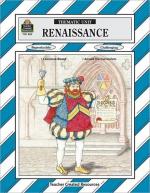|
This section contains 628 words (approx. 3 pages at 300 words per page) |

|
This selection is from the medical treatise On the Secrets of Women, written in the early fourteenth century by an unknown author but attributed to the famous medieval scientist and philosopher Albertus Magnus.
Now that we have finished our introductory remarks, designed to prepare the reader's mind toward this subject matter, let us turn to the matter of the book, and first let us examine the generation of the embryo Note therefore that every human being who is naturally conceived is generated from the seed of the father and the menses of the mother, according to all philosophers and medical authorities And I say "medical authorities" because Aristotle did not believe that the father's seed was part of the substance of the fetus, but rather that the fetus proceeded from the menses alone, and afterwards he states that the...
|
This section contains 628 words (approx. 3 pages at 300 words per page) |

|




